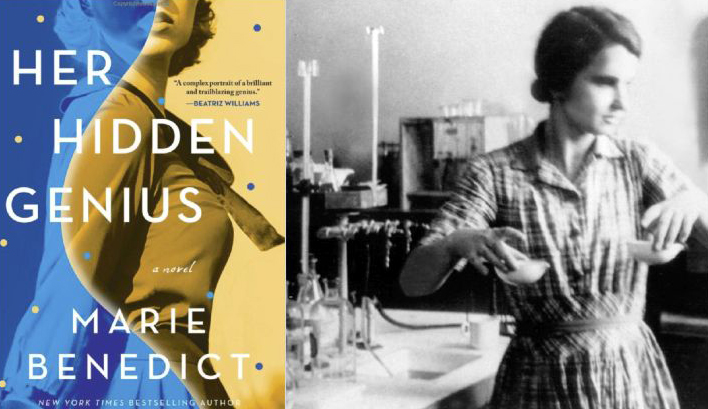Nursing Book Club
Her Hidden Genius by Marie Benedict
This historical novel looks at the dark side of the discovery of DNA

James Watson won a Nobel Prize in 1962 for discovering the double helix structure of DNA. He maintained the answer to the puzzle came to him in a dream in 1953. Her Hidden Genius, a novel by Marie Benedict, tells a different story
Her Hidden Genius is historical fiction, but the facts behind it are very real. Protagonist Rosalind Franklin was a British scientist with a Ph.D. in physical chemistry. Hired by the British Coal Utilisation Research Association in the ‘40s, she developed equipment that allowed crystals to be photographed with a precision previously unknown.
Franklin’s research in the science of crystallography and the use of X-ray diffraction led her to the famous Photo 51. Taken by Franklin’s assistant Raymond Gosling at King’s College London in 1952, the photo clearly showed the double helix structure of the DNA molecule.
Professional Rivalries
Meanwhile, Watson and Francis Crick were also studying the structure of DNA at Cambridge University, using a model-based approach that Franklin didn’t consider entirely scientific. Franklin was a slow and methodical researcher who believed models and theories should follow the data rather than the other way around, a conviction that held her back in the race for discovery.



